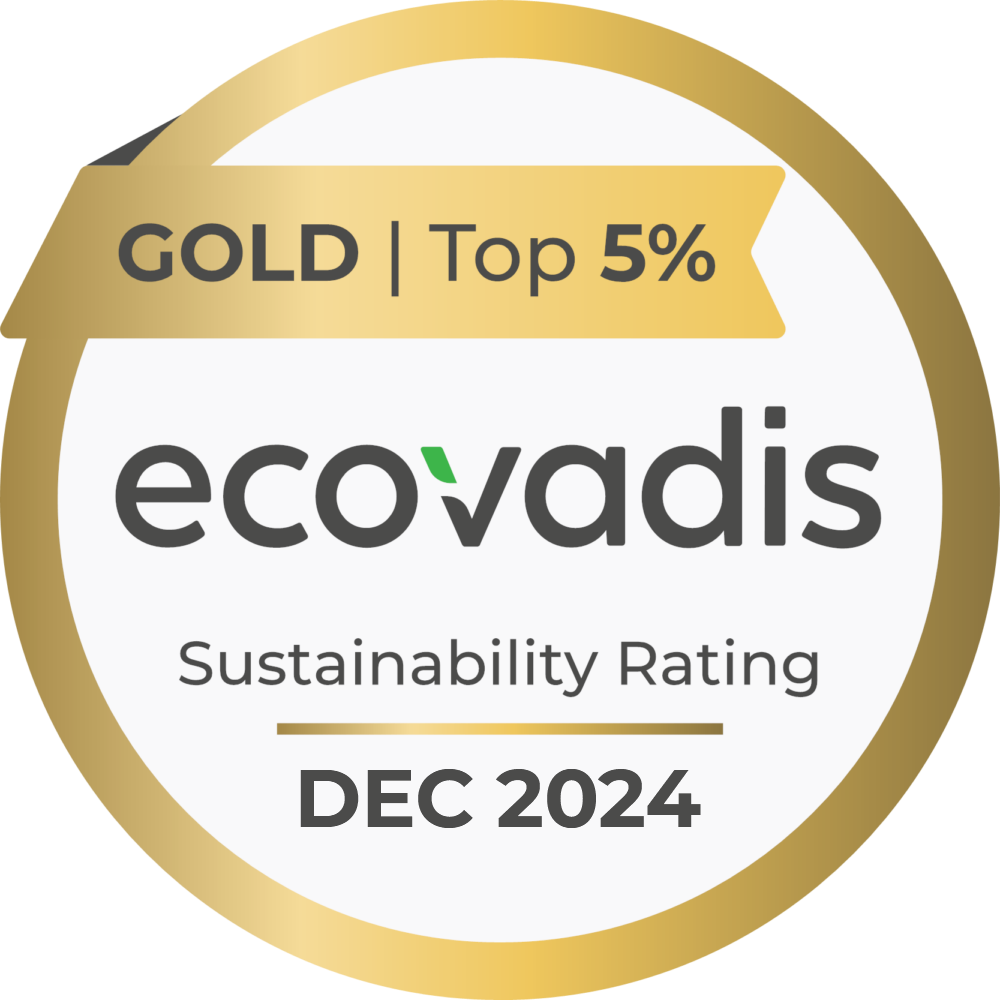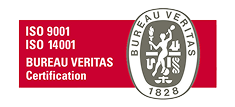Our environmental challenge
The events industry has a crucial role to play in tackling climate change. As an industry player, Exhibit Group is actively committed to reducing its environmental impact through the development of sustainable solutions.

"As craftsmen and manufacturers, we are aware of the footprint left by our activity and our tangible achievements. Reducing our environmental impact and integrating our waste into a virtuous cycle are an integral part of our strategic direction.
Charlotte Rivaton, Director of Human Capital
Acting upstream
projects
Production
eco-responsible
Management of
waste
Economy
circular
Acting upstream of projects
Sustainable purchasing
There's no denying it: printing on traditional media is particularly polluting.
Over 90% of PVC is manufactured from fossil fuels, and takes hundreds of years to decompose. The micro-particles it releases pollute the oceans and water tables.
It is our responsibility to encourage the use of sustainable materials before each project.
The transition to a range of predominantly eco-responsible materials is therefore one of our priorities.

Production
eco-responsible
Our industrial strategy aims to guarantee eco-responsible technological performance.
This conviction is reflected in our conscious choices in terms of industrial investment, focused on equipment that minimises our impact on the environment.
We have developed solid partnerships with suppliers who are highly committed to sustainable development. This guarantees the eco-design of our machines (and therefore controlled ink and energy consumption) as well as informed maintenance.
Our entire fleet of large-format digital printing machines is 100% solvent-free
UV, odourless, VOC-free water-based inks, sublimation.
As pioneers, we have been investing in textile sublimation, an innovative and environmentally-friendly technology, for over 10 years.
We acquired our first 5 m wide sublimation printing machine 7 years ago, along with a 5 m cutting table that is unique in France.

Top 5
With a score of 77/100, Exhibit Group has been awarded Ecovadis Gold status and is now one of the 5% (97th percentile) best performing companies in terms of sustainable development.
Waste management
Incorporating our waste into a virtuous circle is part of our daily practices.
We have set up an advanced selective sorting system: 17 streams of non-hazardous industrial waste are sorted directly on our production sites.
- 100% of cardboard packaging is recycled and reused to make cardboard and newsprint; ;
- 100% of plastic films are recycled by the plastics industry; ;
- 100% of wooden pallets are crushed, recycled and transformed (fuel, paper/cardboard, chipboard, pallets); ;
- 100% paper is recycled and reused to make new paper.
Circular economy
We are also working to promote the circular economy by offering our customers solutions for reusing their media, which are recovered at the end of the operation for recycling or upcycling.
To encourage the recycling of a large number of used media (flexible and rigid PVC, polyester textiles, black backs, PMMA, Dibond, Display structures, etc.), we offer tailor-made solutions based on our in-house experts and our network of trusted local partners.
These French organisations take back media after an event, identifying the materials to be recycled, sorting them and depolluting them in workshops run by social integration companies or companies with employment objectives.
When the condition of the materials allows it, we give priority to re-use solutions by donating materials to a network of SSE (Social and Solidarity Economy) players (associations, solidarity workshops, artists, local authorities, etc.). Used materials are then given a second life through upcycling, with minimal impact from their processing, packaging and transport.
The residual recycling of other media is organised via various channels.
Impact assessments can be sent to you at the end of the operation. This is an essential means of communicating your commitment.
The stages in the upgrading chain
Collection of used media
Identification of materials
Cleaning up visuals
Sorting materials
Upcycling / Recycling
Impact assessment
A positive impact





A long-standing commitment formalised in our CSR Charter
Carbon footprint
We carried out our first Bilan Carbone Print in March 2023, with the support of Incidence 8.
The aim? To highlight the most significant points of impact generated by our activity, in order to identify areas for improvement and implement concrete measures to reduce our greenhouse gas emissions.
Climate Action Plan
Following our carbon assessment, we have drawn up a roadmap to significantly reduce our environmental footprint over the next two years. We have defined 4 major priorities:
Reasonable travel
Reducing the carbon footprint of employee travel, both to and from work.
Sustainable purchasing
Carrying out a detailed investigation of operational purchasing in order to strengthen the policy of responsible purchasing of goods and services, involving the Group's suppliers.
Eco-design
Work on product design to reduce the waste associated with them: production waste, packaging and the end of the product's life.
Reporting
Improve the quality of data collected for future exercises by gathering more operational data from stakeholders.